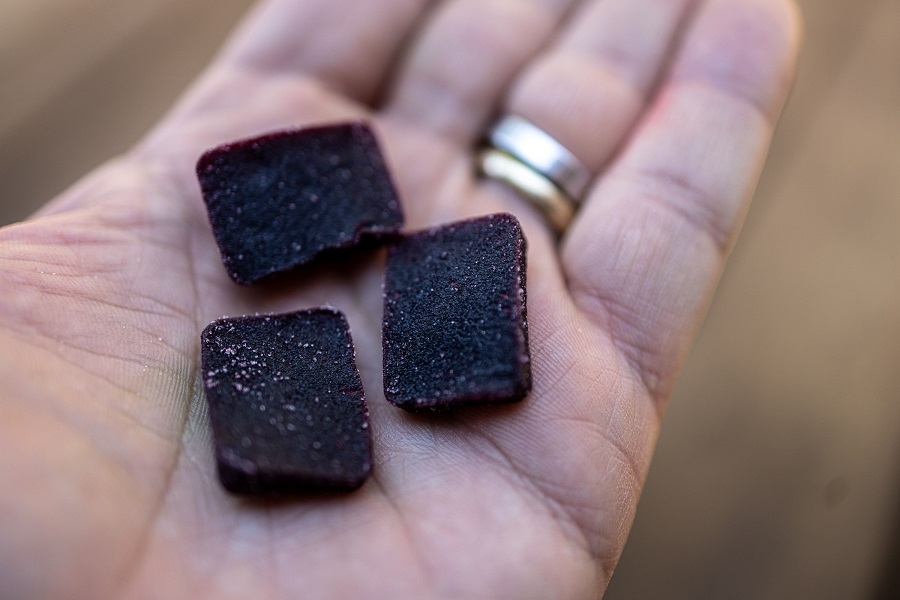The non-psychoactive hemp compound will disappear from grocery stores, but will be available in dispensaries for a one-year grace period.
This week products containing the cannabis compound CBN will be removed from Oregon grocery-store shelves, due to restrictions passed by the Oregon Liquor and Cannabis Commission in December.
Oregon will become the first non-prohibition state in the country to ban the sale of products which use cannabinol, or CBN, from grocery stores when the ban becomes effective Friday.
CBN is not as well known or widely researched as cannabidiol (CBD) and cannabigerol (CBG), but is not considered psychoactive. Proponents say it can induce sleep and help patients manage pain.

A sales clerk displays Wyld CBN-infused gummies. Photo: Jason Kaplan.
Because the compound is usually created in a laboratory, it is considered “artificially derived” under regulations adopted by the Oregon Liquor and Cannabis Commission. OLCC officials say they aren’t as concerned about the potential for intoxication so much as whether the product is safe.
According to a 2021 market analysis by Seattle-based data-analytics firm Headset and FloraWorks and published by MJ Biz Daily, an Oregon supplier of hemp-derived cannabinoids, found sales of CBN products totaled $65 million in the four quarters before the analysis was published.
Of the four states where CBN was available in 2021 — California, Colorado, Nevada and Oregon — Oregon was the second largest market for CBN products, behind California, the analysis said.

Wyld CBN-infused gummies. Photo: Jason Kaplan.
After Oregon’s ban goes into effect, grocery stores will be unable to carry CBN products, but dispensaries will have a one-year grace period to continue to sell the products.
After the year is up, the OLCC only allow the sale of CBN products that undergo a rigorous and expensive testing processes and receive approval from the Food and Drug Administration.
At least two Oregon-based manufacturers — Wyld and Grön — threatened to leave the state shortly after the ban passed, telling Willamette Week in January that the ban would make their businesses unsustainable.
Earlier this week the Portland Business Journal reported that while Wyld continues to fight the ban, the company has not announced a move or any job cuts.
Neither company responded to request for comment in time for Oregon Business’ deadline, but a Wyld representative said they would provide a statment in the near future.
To subscribe to Oregon Business, click here.






